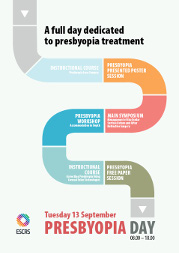Role of antifungal resistance genes in treatment outcome of fungal keratitis
Session Details
Session Title: Cornea Medical II
Session Date/Time: Tuesday 13/09/2016 | 08:00-10:30
Paper Time: 08:12
Venue: Hall C3
First Author: : J.Sengupta INDIA
Co Author(s): : S. Saha A. Khetan D. Chatterjee D. Banerjee
Abstract Details
Purpose:
Resistance to antifungals continues to be a significant problem in the common fungal pathogen. Mechanisms that have been identified include alterations in the gene or overexpression of efflux pump genes including MDR1, MDR2, and MDR4 and ROD.
Setting:
Tertiary care eye hospital of eastern India.
Methods:
In the present study, a collection of corneal scraping material and fungal clinical isolates were analyzed for the known molecular mechanisms of resistance by standard methods. We have included 25 culture positive fungal ulcer patients for the year 2014-15. Corneal scraping material was collected for Pan fungal PCR (Polymerase Chain Reaction) and selective genes study. Same procedure was followed for the culture positive cases respectively. Broad spectrum antifungal was given to all and the treatment outcome.
Results:
Among 25 fungal ulcer patients 17 cases were all selective genes positive in both scraping and culture. In 5 cases genes were positive only in culture grown and scraping materials were positive in 2 cases. After having same antifungal therapy the 15 cases where selective genes were actively present in scraping and culture material needed surgical intervention. Medically improvement found in two cases inspite of gene positivity. Among 8 cases of single sample (Either corneal scraping or culture) gene positivity 5 cases resolve successfully by medical therapy.
Conclusions:
Pan fungal PCR is important for early detection of fungal ulcer which can increases the successful medical treatment in fungal keratitis. Detection of drug resistance genes are playing important role to identify the virulence factor and drug resistant factor of the causative organism.
Financial Disclosure:
NONE





